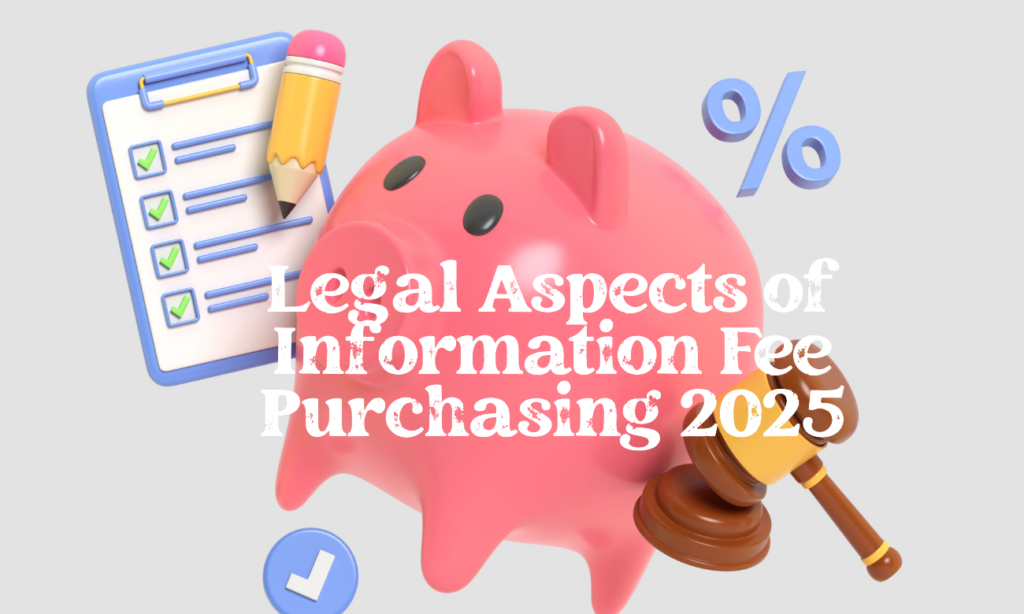
The Legal Aspects of Information Fee transactions continue to evolve as governments and financial institutions introduce stricter regulations. Companies and individuals engaged in these transactions must understand the legal framework to ensure compliance and avoid risks. The increasing demand for 정보이용료 현금화 has brought new challenges, such as regulatory restrictions and cash shortage concerns. Staying informed about the latest legal developments is crucial for businesses looking to operate efficiently in this sector.
Key Legal Aspects of Information Fee Purchasing
The Legal Aspects of Information Fee purchasing involve multiple areas of compliance, including financial oversight, fraud prevention, and consumer protection measures. Authorities worldwide are implementing strict policies to regulate these transactions while allowing legitimate businesses to function transparently. The following are the primary legal aspects governing information fee purchasing:
- Regulatory Licensing Requirements – Companies engaging in cashing out information usage fee 정보이용료 현금화 transactions must obtain proper licenses from financial regulatory bodies to ensure lawful operations and prevent fraudulent activities.
- Anti-Money Laundering (AML) Compliance – Governments enforce AML regulations to prevent illicit financial activities, requiring businesses to monitor transactions and report suspicious activities.
- Know Your Customer (KYC) Policies – Identity verification requirements ensure that users engaging in transactions are legitimate, reducing the risks of fraud and unauthorized transactions.
- Consumer Protection Laws – Regulations protect consumers from fraudulent service providers, ensuring that information fee transactions remain transparent and legally compliant.
- Transaction Limits and Reporting Obligations – Some jurisdictions impose transaction caps and require businesses to report high-value transactions to prevent financial crimes.
Regulatory Framework for Information Fee Transactions
Understanding the Legal Aspects of Information Fee transactions requires businesses and consumers to adhere to various compliance measures.
- Government Licensing and Compliance: Regulatory bodies require companies involved in 정보이용료 현금화 transactions to obtain proper licensing, ensuring lawful operations and preventing fraud.
- Transaction Monitoring and Reporting: Governments enforce strict transaction monitoring to identify suspicious activity and prevent illicit financial activities.
- Identity Verification Requirements: Businesses must conduct stringent user authentication checks to prevent unauthorized transactions and align with legal frameworks.
Challenges in Legal Compliance for Information Fee Transactions
Despite advancements in regulation, businesses and individuals involved in 정보이용료 현금화 still face several legal hurdles.
- Regulatory Restrictions: Legal aspects of information fee purchasing is a complex legal frameworks can create challenges for businesses seeking to facilitate seamless information fee transactions.
- Liquidity and Cash Flow Issues: Many service providers experience cash shortage when processing high volumes of transactions, impacting their ability to meet customer demands.
- Delayed Approvals Due to Compliance Measures: Strict verification processes can slow down transactions, causing frustration among users who require quick access to funds.
- Security Measures Against Fraud: While necessary, increased anti-fraud efforts can sometimes make it difficult for legitimate users to complete their transactions smoothly.
Ensuring Compliance in Information Fee Transactions
To operate legally in the 정보이용료 현금화 sector, businesses and individuals must adopt best practices to comply with regulatory requirements.
- Engage with Licensed Service Providers: Working with legally accredited platforms reduces the risk of financial penalties and ensures a smooth transaction process.
- Maintain Comprehensive Transaction Records: Proper documentation is essential to comply with audits and regulatory inquiries.
- Follow Strict Identity Verification Protocols: Ensuring customer authentication is a key factor in preventing fraud and unauthorized transactions.
- Stay Updated on Regulatory Changes: Laws governing Legal Aspects of Information Fee transactions are continuously evolving, making it essential for businesses to stay informed.
- Implement Risk Management Strategies: Proactively identifying potential legal risks can help companies mitigate compliance issues before they arise.
Case Study: Overcoming Legal and Financial Barriers

In recent years, regulatory bodies have taken significant actions against companies engaging in unfair or deceptive practices related to microtransactions, which are closely related to information fee purchasing. Legal aspects of information fee purchasing in digital financial service provider specializing in cashing out information usage fees 정보이용료 현금화 faced difficulties due to cash shortage and new compliance regulations. By adjusting their operational model to align with legal requirements and enhancing their verification systems, they improved transaction success rates by 40% within six months. This case highlights the importance of adapting to regulatory changes to sustain business growth in the evolving market.
Conclusion
Understanding the Legal Aspects of Information Fee transactions is crucial for businesses and individuals looking to engage in 정보이용료 현금화. Addressing compliance challenges, mitigating cash shortage risks, and staying updated with regulatory changes are essential to ensuring smooth and lawful transactions. By adopting best practices and adhering to financial regulations, stakeholders can continue to operate securely in this evolving sector.